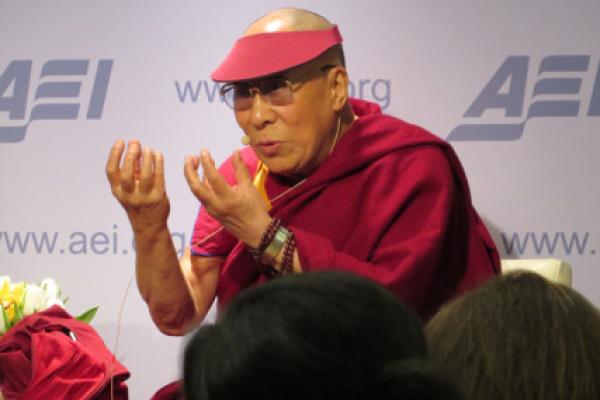Some of the brightest pro-business minds in the nation prodded the Dalai Lama on Thursday to offer a warm endorsement of capitalism.
But during an appearance by the spiritual leader of Tibetan Buddhism at the American Enterprise Institute, one of the world’s most stalwart and, in conservative circles, respected free enterprise think tanks, they came up short.
The Dalai Lama was the star participant in a morning of panels on “moral free enterprise” and “human happiness.”
Asked by AEI President Arthur Brooks and Columbia Business School Dean Glenn Hubbard whether he agrees that the free enterprise system is the most moral of economic systems, and why he thinks the U.S. is the richest nation on earth, the Dalai Lama answered in broken English with his own question: What do you mean by rich?
Read the Full Article

